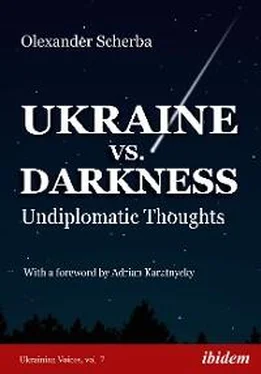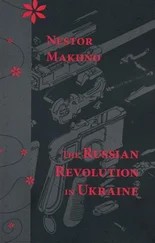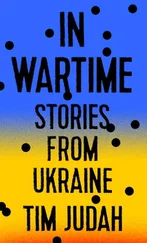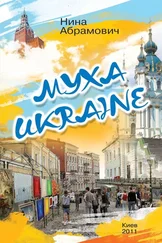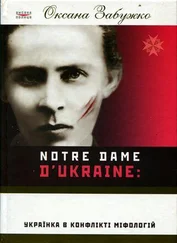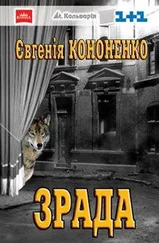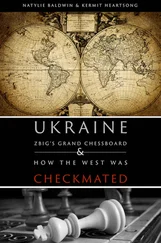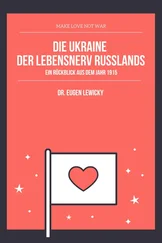ibidem-Press, Stuttgart
“If you really want to make sense of what is happening in Ukraine today, and how Europe views what is going on in Ukraine, read this book.”
Ivan Krastev, author of "Democracy Disrupted" and "After Europe"
“A government insider’s gripping and incisive look at Ukraine and its war with Russia. Essential for anyone who wants to understand this poorly known country, whose fate is pivotal for the future of Europe and the global balance of power.”
Peter Pomerantsev, author of "Nothing Is True and Everything Is Possible" and "This Is Not Propaganda"
“From one of Ukraine’s leading diplomats, these unvarnished “undiplomatic thoughts” are deeply personal reflections on a country on the front lines of liberal democracy’s civilizational battle against kleptocratic authoritarianism. Scherba expertly deconstructs myths about Ukraine, as well as Russian motives in his country, eloquently voicing its people’s aspirations to determine their own future by escaping the Kremlin’s shadow and becoming a full-fledged European country.”
Gregory Feifer, author of "Russians" and "The Great Gamble"
“Ambassador Olexander Scherba’s book is an excellent and instructive example of how patriotism can draw upon the foundations of Christian humanism while avoiding the trap of nationalism.”
Anton Shekhovtsov, author of "Russia and the Western Far Right: Tango Noir"
“In his book, Olexander Scherba avoids the usual stereotypes of a diplomat as a frozen bureaucrat and of a post-Soviet Ukrainian having difficulty speaking to the world. He himself is proof of Ukraine’s fight against darkness.”
Myroslav Marynovych, vice-rector of Ukrainian Catholic University in Lviv
Contents
Foreword
Zitat
“We Will Never Be Slaves!”
The Three Goodbyes
For Whom the Bell Tolls
Reconfiguring Europe’s Mental Map
Euromaidan. Flashback
Pandora’s Box of Evils
Crimea, Donbas and the USSR 2.0
Ukraine-Russia. What Went Wrong
From Dusk Till Dawn
Going Against the Flow
Battle for Europe. Battle for the Soul
Why Nationalism Can’t Be the Idea of a European Ukraine
Ukraine, the Church and the Post-Truth World
The Strasbourg Betrayal
Surkov and Emptiness
Notes on the Margin of (Yet Another) Apocalypse
What Will Bring Peace to Ukraine’s Soul?
Epilogue
by Adrian Karatnycky
Ambassador Olexander Scherba’s book of essays is an important means by which to understand the nature of Ukraine’s struggle for sovereignty. It is a window into Russian hybrid war. And it is a thoughtful look at Ukraine’s frequently arcane and always complex politics, in which the Russian factor and Russian fifth columns loom large.
From his vantage point of diplomatic service in Vienna, as well as his past service in Bonn, Berlin and Washington, Scherba is a sophisticated and congenial guide to Ukraine and its crucial place in the complex geopolitics of East Central Europe. In a fair-minded and illuminating fashion, he discusses the phenomena of civil society, of religion, of nationalism, and of reform in his own country. He takes on major issues and challenges in international affairs, including Russian imperialism, hybrid war, and the future of Europe.
He is equally an intelligent guide to broader geo-political trends in a number of countries that like Ukraine are on the frontlines of the struggle between democracy and tyranny, between light and darkness.
Scherba has blazed an impressive trail of excellence as a diplomat in Austria, a country with a noble diplomatic tradition, one that includes the towering figures, such as Prince Klemens von Metternich. As a former imperial center, Austria is a crucible for important thinking about complex geopolitics. During his years of service in Vienna, Ambassador Scherba has shown in his commentaries that he can play in this intellectual Premier League.
They are the byproduct of the writer’s diplomatic mission in Austria, which has been by an active public presence in the Austrian media, from television to the country’s top news periodicals and intellectual journals. He also has been at the center, as well of energetic efforts to promote modern Ukraine’s cinema, theatre and music, thus reminding Austrians of the European nature of Ukraine’s cultural and intellectual life.
Many of these essays are also part of Ambassador Scherba’s effort to borrow from his diplomatic encounter with Central Europe to also speak directly to the Ukrainian people and its elite.
Taken together, this collection of essays demonstrates in intelligent and engaging fashion how central is the fate of Ukraine to the future of Europe, and indeed to the identity of Europe as a community of democratic values.
In reading these lively texts, readers hear the voice of a spirited defender of the liberal values that are now present both within significant portions of the Ukrainian population and within much of its post-Communist elite.
This volume and the high quality of thinking are a tribute to Ambassador Scherba’s talents as a writer and thinker. But the volume is also a product of the unique, indeed, remarkable institution: Ukraine’s Ministry of Foreign Affairs.
In 1991, when Ukraine won its independence, many of the new state’s structures emerged damaged and deformed—including the judicial, police, administrative, media and cultural sectors.
Not so, with the Foreign Ministry, which in large measure had to be created ex nihilo. As such it needed to quickly populate itself not only with cynical Soviet-era diplomats, but with a new generation of foreign policy experts. This generation of new hires, to which Ambassador Scherba belongs, were unencumbered by the ossified traditions and lies of the Soviet era. As a result, the Foreign Ministry quickly developed an internal culture of expertise, excellence, and patriotism, which has sustained it despite the ebbs and flows of Ukraine’s post-Soviet political scene.
Like many of his counterparts, Ambassador Scherba benefited from coming to his political adulthood in an independent, nascent Ukrainian democracy—full of promise and challenges. Like many of his counterparts, he also had the advantage of the impressive and rigorous training offered diplomats at the Kyiv’s Shevchenko State University Institute of International Relations.
Read these essays and you will understand why Ukraine’s Foreign Ministry has been one of the main pillars of the country’s independence. Read these essays and you will also be convinced that Ukraine belongs in the European family of nations. Read these essays and you will understand that the Ukrainian state is filled with able, intellectual, insightful, and cultured officials who have emerged in the decades since the USSR’s collapse. And read these essays to shine a light on where there has been the darkness of ignorance and disinformation.
ADRIAN KARATNYCKY, the author of several books and editor of numerous collected volumes on the Soviet and post-Soviet space, is the Former President of the U.S.-based, international democracy advocacy organization Freedom House. He is the Senior Fellow at the Atlantic Council of the U.S., where he is co-director and founder of its Ukraine in Europe program.
“I know your deeds, that you are neither cold nor hot. I wish you were either one or the other! …”.
Revelations 15:3
“We Will Never Be Slaves!”
Let me introduce myself. I’m a 50-year-old Ukrainian diplomat currently completing my tenure as a Ukrainian ambassador in Austria. My first name—Olexander (Alexander)—is the most popular in the post-Soviet space. My last name—Scherba—has to do with the Orthodox Serbs who fled the Ottoman Empire and found their new home in Ukraine, which was back then a part of “Southern Russia” and “Eastern Poland”. My parents were the first ones in the family to finish university. Other than that, my heritage is Ukrainian peasants—for as far back as the eye can see. Maybe that’s why I always keep forgetting to water my plants.
Читать дальше
